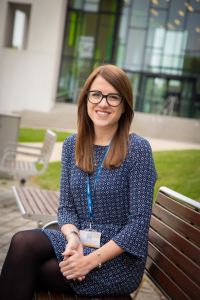Jessica Rutherford (United Kingdom)
1 –
Jessica Rutherford
Jessica Rutherford completed her BSC Computer Animation and Digital SFX at Northumbria University, and went on to gain an MA Animation and Design at the University of Sunderland, focussing on the use of animation for educational purpose for Early Years learners. Jessica is a 2D animator, preferring the method of replacement/cut out animation for her work. Jessica’s interests very much lie with the use animation as an educational tool and she has carried out classes of this nature with various groups of learners of all ages, as well those with special needs and learning difficulties. She is interested in exploring the use of the animation film making process and pre-productionprocess within neurodiverse populations. Jessica is now working towards her PhD at Loughborough University where her research focus explores the use of animation practice as an alternative educational tool to teach mathematical concepts and topics to Foetal Alcohol Spectrum Disorder (FASD) affected individuals.
Abstract
This paper discusses the development of a Learning Programme which uses animation production as a learning tool for a specific population of children. The programme has been designed to address the educational needs of individuals with Foetal Alcohol Spectrum Disorder (FASD), a condition that causes irreparable brain damage due to prenatal alcohol exposure. The Learning Programme considers a large body of existing research surrounding education for those with FASD, therapeutic environments and animation for education, bringing together key elements from each field to ensure it targets the specific needs of this population with a creative, tactile medium. Individuals with FASD require concrete information in order to process and understand, and animation allows us the opportunity to make abstract concepts concrete. This paper will give an overview of the session structure of the Learning Programme and the required production elements and learning outcomes of each, before moving on to detail the pre and post testing strategies applied to ensure this approach to learning is measurable against National Curriculum Learning Outcomes. The supporting documentation which is to be developed to allow the programme to become transferable will be discussed and future opportunities for adaptation and application will also be considered.
Palavras-chave: Education, Therapeutic Education, Inclusivity, Neurodiversity, Special Educational Needs
